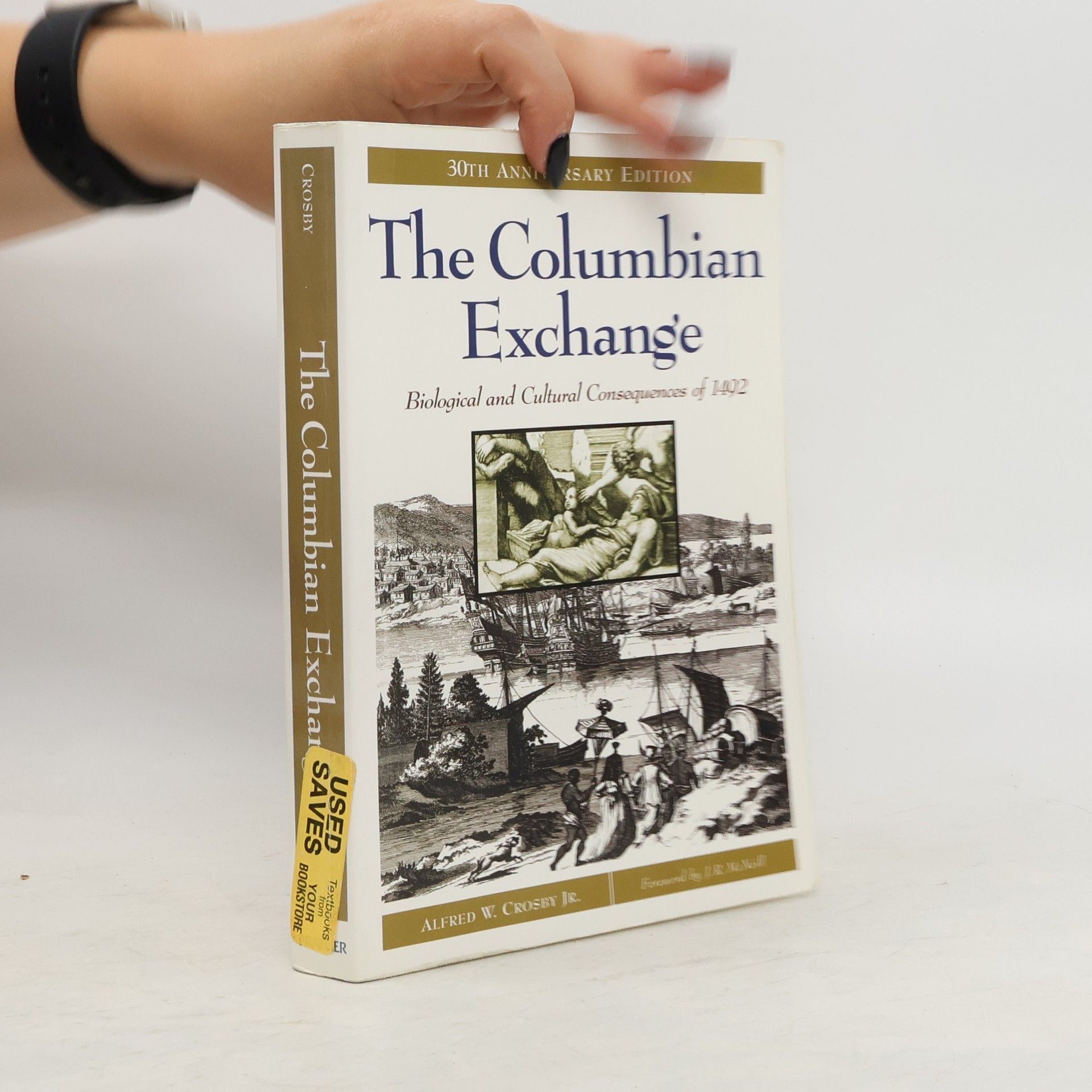Thirty years ago, Alfred Crosby published a small work that stressed a simple point - that the most important changes brought on by the voyages of Columbus were not social or political, but biological in nature. This 30th anniversary edition includes a new preface from the author.
Alfred W. Crosby Knihy
15. leden 1931 – 14. březen 2018
Alfred W. Crosby Jr. byl interdisciplinárním výzkumníkem, který propojoval historii, geografii, biologii a medicínu. Zkoumal historické příčiny nerovnoměrného rozložení světového bohatství a roli, kterou v tom hrály biologické faktory. Klíčovým tématem jeho práce byl vliv epidemií na lidské dějiny, včetně dopadu pandemie španělské chřipky na svět. Crosby je také tvůrcem termínu „kolumbovská výměna“, který zásadním způsobem ovlivnil historické bádání.


Ecological Imperialism
- 368 stránek
- 13 hodin čtení
A fascinating study of the important role of biology in European expansion, from 900 to 1900.